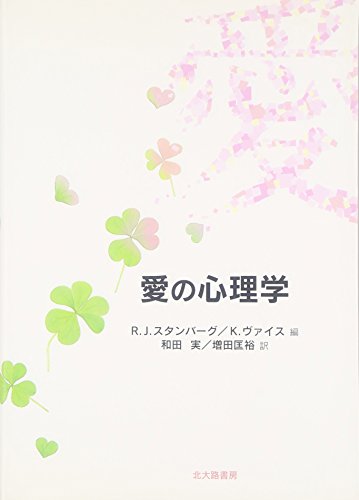4 0 0 0 OA 恋愛関係における排他性の研究
- 著者
- 増田 匡裕
- 出版者
- The Japanese Group Dynamics Association
- 雑誌
- 実験社会心理学研究 (ISSN:03877973)
- 巻号頁・発行日
- vol.34, no.2, pp.164-182, 1994-11-30 (Released:2010-06-04)
- 参考文献数
- 14
- 被引用文献数
- 6 4
The present study examined exclusivity in heterosexual romantic relationships and its effects on the possibility of the maintenance of these relationships. More than others, romantic relationships are characterized by exclusivity, which establishes the boundary of a romantic group. This aspect of romantic relationships can be inferred from the manner in which people act toward the other, namely, the ritual acts which define the relationship as exclusive and proscribe extradyadic ties of the same kind. The nature of these rituals depends on the larger and the mini-culture peculiar to the dyad. From this perspective, exclusivity is reflected in the extent which individuals would accept their partner or themselves participating in extradyadic heterosexual relations. Hence, dyadic exclusivity can take one of four values: high-high, high-low, low-high, and low-low. A questionnaire was administered to one-hundred-thirty-six couples which allowed us to classify them into the above four types and to assess perceived dyadic stability. Exclusivity was found to have considerably less impact on stability for the male partner than for the female partner. Females regarded high exclusivity as indispensable, whereas males gave most weight to both partners agreeing about the proper degree of exclusivity. Agreement between partners about exclusivity, however, is relatively hard to occur after short acquaintance. These and other findings suggest that exclusivity is an important factor not only for explaining the cohesiveness of romantic dyads but also for understanding their development.
2 0 0 0 愛の心理学
- 著者
- R.J.スタンバーグ K.ヴァイス編 和田実 増田匡裕訳
- 出版者
- 北大路書房
- 巻号頁・発行日
- 2009
2 0 0 0 OA 注意欠陥多動性障害モデル動物での豊かな環境飼育による脳内ドパミン神経系の変化
注意欠陥多動性障害モデルラのSHRラットを用い、発育期の外部環境(豊かな環境飼育、通常飼育、孤独な環境飼育)による情動行動の変化と脳内ドパミン神経系の変化をコカイン&アンフェタミン調節性転写物 (CART)に注目し解析した。その結果、豊かな環境飼育(EE)群では、他群に比べオープンフィールド試験で多動性が減少、社会性試験で社会性が亢進していた。EE群では、CART 発現が扁桃体で上昇し、免疫染色により中心核での強い発現が確認された。さらにパルブアルブミン非陽性のGABA陽性細胞に共発現することも確認された。本研究から、発育期の環境がCARTを介して情動行動の形成に影響することが示された。
- 著者
- 相馬 敏彦 西村 太志 鬼頭 美江 谷口 淳一 小森 政嗣 増田 匡裕 山田 順子 金政 祐司
- 出版者
- 公益社団法人 日本心理学会
- 雑誌
- 日本心理学会大会発表論文集
- 巻号頁・発行日
- vol.83, pp.SS-078-SS-078, 2019
1 0 0 0 IR 不育症が夫の対人関係に及ぼす影響と夫へのサポートに対する夫婦の態度の関連性
- 著者
- 増田 匡裕
- 出版者
- 日本母性衛生学会
- 雑誌
- 母性衛生 = Maternal health (ISSN:03881512)
- 巻号頁・発行日
- vol.52, no.4, pp.444-453, 2012-01-01
- 参考文献数
- 12
本研究は不育症の体験が夫(胎児の父親)の対人関係に与える影響を分析し,夫に対するソーシャル・サポートの必要性を探ることを目的とした探索的研究である。当事者グループ会員の40組の夫婦が個別自記入・郵送回収式の質問票に回答した。流産体験が夫の対人関係に及ぼす影響を説明する自由記述回答(アカウント)は帰納的分析法でコード化された。夫へのサポートに対する夫婦の態度を組み合わせ,40組の夫婦は「妻もしくは両方が否定的」「夫婦共に肯定的」および「妻のみ肯定的」の3群に分類された。クロス表分析の結果,「妻もしくは両方が否定的」である夫婦の多くが夫の対人関係に流産の影響はないと記述しているのに対し,「夫婦共に肯定的」な夫婦はなんらかのよいまたは悪い影響について述べているケースが多かった。さらにサポート源に関する変数とのクロス表分析からは,「夫婦共に肯定的」群と「妻のみ肯定的」群の違いが示唆される結果が得られた。
